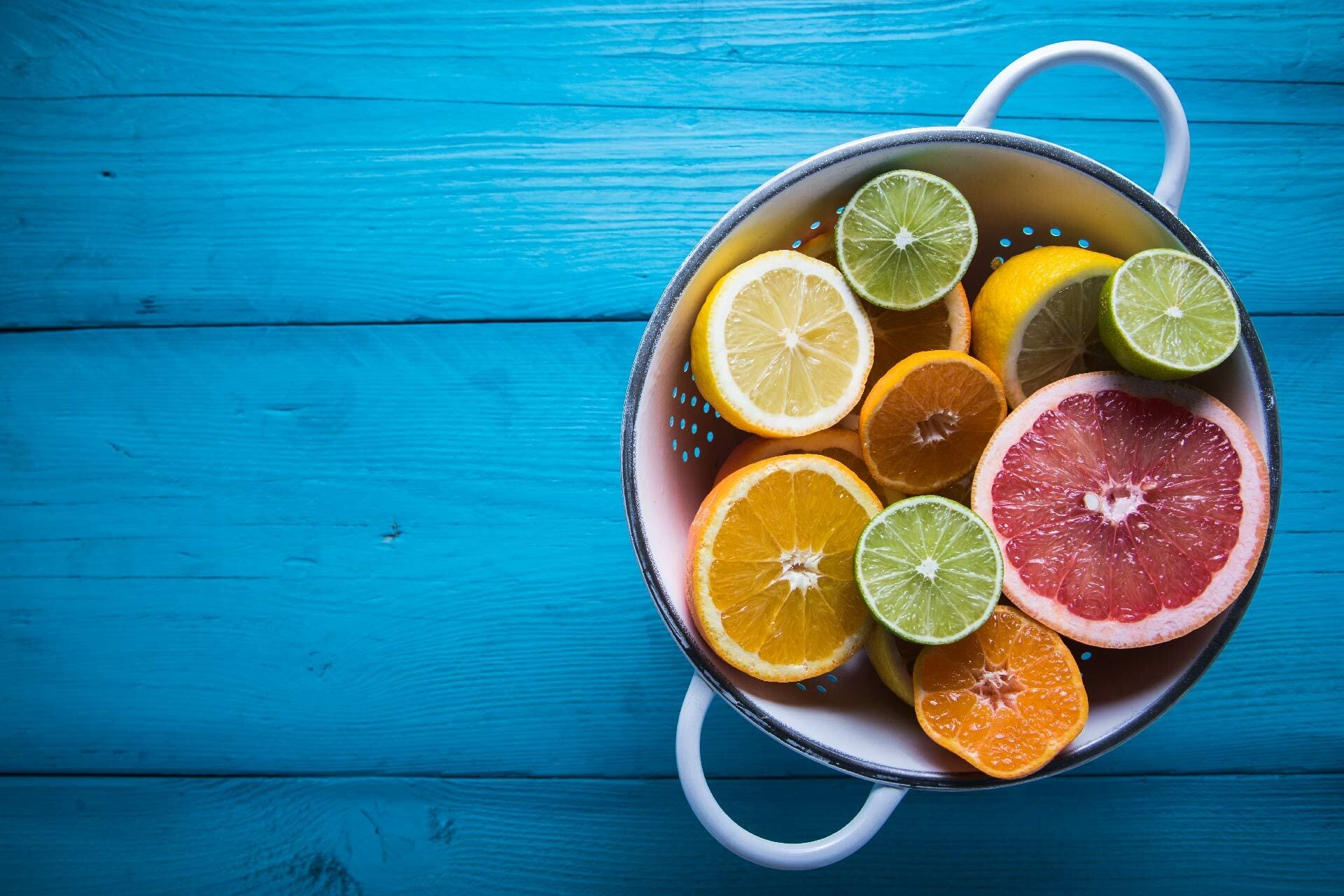
We all know that vitamin C is important for our health and that oranges are a good food to eat for daily vitamin C. Do you know what other foods are high in vitamin C and the benefits it has?
What is vitamin C?
Vitamin C or you may have heard of it called, ascorbic acid, is a vitamin that dissolves in water (water soluble) and you get it from many foods you eat every day. Humans, unlike most animals can’t make vitamin C so we have to get it from our diet1.
What does vitamin C do?
The benefit of vitamin C are many. Vitamin C is necessary for all the tissues in our body for growth and repair. It’s involved in2:
- Keeping skin, bones, teeth, connective tissue (such as cartilage) healthy
- In the making of collagen, a protein used in the structure of your body
- Improving the absorption of non haeme iron, the type found in plant foods
- Functioning of the immune system
- Wound healing
- Is a powerful antioxidant.
A lack of vitamin C over a period of three months or more can cause a deficiency called scurvy3. Here’s a fun fact from history - you probably think of discovery sea voyages where thousands of sailors died of this terrible ailment that ravaged both body and mind, due to lack of fresh fruit and vegetables. The skin begins to break down and wounds don’t heal. Captain Cook was very resourceful and managed to keep scurvy away by having his crew eat sauerkraut, as the cabbage had small amounts of vitamin C and he had them finding fresh produce where they stopped also containing vitamin C.
As vitamin C is not stored for long in your body getting a regular intake by eating fresh fruit and vegetables is necessary.
What foods are high in vitamin C?
Vitamin C is highest in fresh fruit and vegetables, particularly raw as some cooking methods reduce the amount of vitamin C. Boiling for example is the worst offender here, as it uses a lot of water and some of the vitamin C dissolves into the water, with vitamin C being a water soluble vitamin. Boiling also tends to be for a longer period at a high temperature and this can break down some vitamin C due to the heat. Other non-water soluble vitamins are not necessarily affected by boiling, such as vitamin A that is soluble in fat. Cooking your veggies with methods that use less water and for shorter periods will be best to keep the vitamin C4. Broccoli is a good example as it is a vegetable high in vitamin C. You can microwave it, stir fry or stem it briefly, to keep the content high. As research shows the level of vitamin C loss varies between the type of vegetable and the cooking method and also varies between fruit and vegetables depending on many factors including where they are grown.
You have heard it before, aim for two fruit and five servings of vegetables per day and you will be more than likely to easily meet your daily vitamin C target5.
Most fruit and vegetables have some vitamin C but there are some stand outs, with higher levels than others6. Here are some of the real winners
- Kiwifruit
- Strawberries
- Kakadu Plums (Australian native plum)
- Capsicum, particularly red (which are ripened green capsicums)
- Blackcurrants
- Oranges, mandarins and other citrus fruit
- Papaya
- Guava
- Tomatoes
- Broccoli
- Brussel sprouts
- Kale and Spinach
- Chilli
- Parsley.
As you can see there are plenty of foods to eat for a daily dose of the all-important vitamin C.
References:
- https://ods.od.nih.gov/factsheets/VitaminC-HealthProfessional/
- https://www.healthdirect.gov.au/vitamin-c
- https://www.healthdirect.gov.au/scurvy
- Lee S, Choi Y, Jeong HS, Lee J, Sung J. Effect of different cooking methods on the content of vitamins and true retention in selected vegetables. Food Sci Biotechnol. 2017;27(2):333-342. Published 2017 Dec 12. doi:10.1007/s10068-017-0281-1
- https://www.eatforhealth.gov.au/food-essentials/five-food-groups/fruit
- ttps://www.nrv.gov.au/nutrients/vitamin-c
